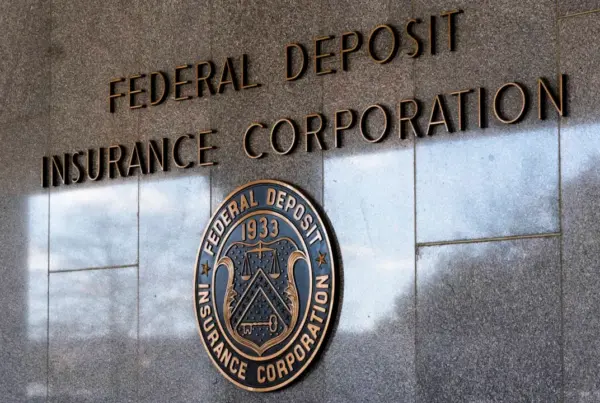“`html
FDIC’s Proposed Brokered Deposits Rule: Key Insights for Financial Institutions
Introduction
On July 30, 2024, the Federal Deposit Insurance Corporation (FDIC) proposed a significant regulatory update concerning brokered deposits. This proposed rule seeks to redefine the parameters surrounding deposit brokers and enhance the regulatory framework governing their activities. The importance of this update cannot be overstated, as it aims to address systemic risks posed by brokered deposits, particularly in light of recent financial instability and the evolving nature of the banking sector.
Historically, the FDIC has focused on managing the risks associated with brokered deposits through various amendments and enforcement actions. The proposed changes are a response to ongoing concerns regarding the potential for brokered deposits to undermine the safety and soundness of insured depository institutions. The primary issue at hand is ensuring that banks maintain adequate capital and liquidity while navigating the complexities introduced by third-party deposit placement.
Key Regulatory Changes & Analysis
1. Expansion of the Definition of Deposit Broker
The proposed rule expands the definition of a deposit broker to encompass a broader range of entities involved in the placement of deposits, regardless of whether they receive a fee for their services.
- Previous Definition: Under the existing regulation, a deposit broker was primarily defined as an entity that received compensation for placing deposits.
- New Definition: The proposed rule includes any entity that facilitates the placement of deposits, thereby increasing the number of entities subject to regulatory scrutiny.
- Statutory Reference: This change aligns with Section 29 of the Federal Deposit Insurance Act, which governs the treatment of deposit brokers.
2. Enhanced Reporting Requirements
The FDIC proposes to implement stricter reporting requirements for banks regarding brokered deposits.
- Monthly Reporting Obligations: Banks will be required to report the total amount of brokered deposits and the identities of the deposit brokers involved.
- Impact on Compliance: This increased transparency is intended to bolster regulatory oversight but may necessitate significant investments in compliance infrastructure for affected institutions.
3. Restrictions on Acceptance of Brokered Deposits
The proposed rule introduces more stringent limitations on the acceptance of brokered deposits by institutions classified as less than well-capitalized.
- Capital Thresholds: Banks failing to meet specific capital requirements may be prohibited from accepting brokered deposits, thereby mitigating risks to the deposit insurance fund.
- Affected Entities: Smaller banks and fintech companies that rely heavily on brokered deposits for liquidity will be particularly impacted by these restrictions.
Legal and Industry Implications
The proposed regulatory changes carry several implications for compliance and operational practices within the banking sector:
- Compliance Burdens: Financial institutions may face increased costs associated with compliance, including the need for enhanced data management systems and reporting capabilities.
- Operational Adjustments: Banks will need to reassess their strategies for acquiring deposits, especially if they are classified as less than well-capitalized.
- Legal Risks: Institutions may encounter legal challenges related to the interpretation of the new definitions and reporting requirements. Recent enforcement actions indicate the FDIC’s commitment to scrutinizing brokered deposit activities.
Recommended Actions & Compliance Strategies
To navigate the proposed rule effectively, financial institutions should consider the following actions:
- Review Internal Policies: Institutions should evaluate their current practices regarding brokered deposits and adjust policies to align with the new definitions and reporting requirements.
- Enhance Compliance Training: Update staff training programs to reflect the regulatory changes, ensuring employees understand the implications of the new rules.
- Engage in Public Comment: Stakeholders are encouraged to submit comments during the public comment period to express concerns or suggestions regarding the proposed rule. This engagement can influence the final regulatory framework.
Key Deadlines:
- Public Comment Period: [Insert deadline for public comments] – Ensure your voice is heard during the regulatory development process.
- Implementation Timeline: The FDIC has not specified a final implementation date, but institutions should prepare for potential changes within the next regulatory cycle.
Conclusion & Next Steps
The FDIC’s proposed amendments to the brokered deposits rule represent a significant shift in regulatory oversight aimed at enhancing the stability of the banking system. Financial institutions must act swiftly to assess the implications of these changes and prepare for compliance.
As the rule progresses through the regulatory process, stakeholders should remain vigilant for further developments, including potential legal challenges or additional amendments. Engaging with the regulatory process through public comments will be crucial for affected parties to ensure their voices are heard.
In summary, the proposed rule presents both challenges and opportunities for banks and fintech companies, necessitating proactive measures to navigate the evolving regulatory landscape effectively.
“`


